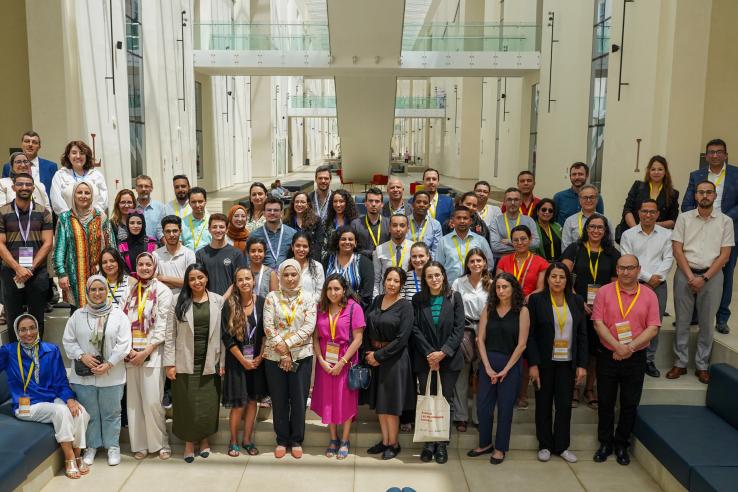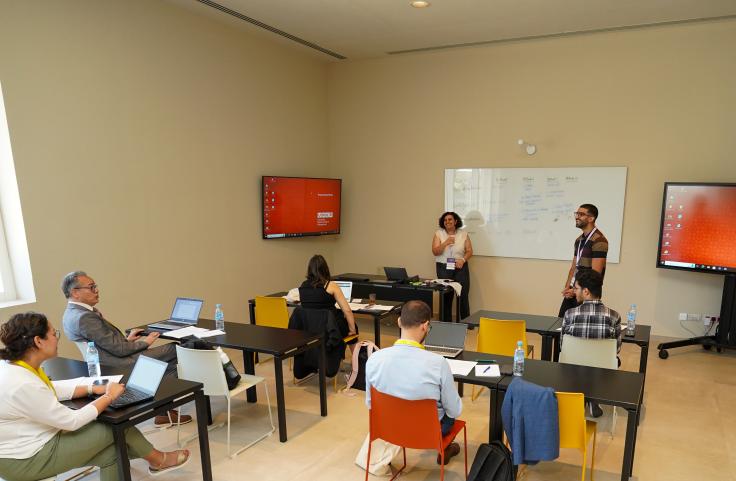Evaluating Social Programs in Rabat: Moroccan decision-makers discuss rigorous impact evaluations

The Morocco Innovation and Evaluation Lab (MEL), in collaboration with the University Mohammed VI Polytechnic (UM6P), the Abdul Latif Jameel Poverty Action Lab (J-PAL), the Harvard Center for International Development (CID) and Community Jameel, hosted an Evaluating Social Programs course on the Rabat Campus of UM6P from July 3rd to July 5th, 2024.
About forty participants from public institutions, international and non-profit organizations seeking to learn about rigorous impact evaluations participated in this comprehensive three-day training course at UM6P on evaluating social programs (ESP). Taught by J-PAL affiliated professors and senior staff, the training marked the official re-launch of the MEL and its commitment to evidence-based policy implementation and also included a networking session between participants and researchers as well as between international and local academics.
The objective of the course was to familiarize participants with the fundamental concepts and methods of an impact evaluation: what do we mean by impact? Why is it difficult to measure the impact of a program? What methods can be used? Why randomize? These are just some of the questions that were discussed during the training.
Randomized evaluations, when feasible, enable rigorous measurement of a program’s impact and provide valuable insights for program implementers and decision-makers. The ESP course also featured lectures on the theory of change and risks and analysis. On the last day, a networking session facilitated connections between Moroccan decision-makers and international researchers. The session offered an opportunity to discuss the evaluation of concrete projects and will ideally spark the initiation of new research projects in Morocco to reinforce MEL’s mission across its new portfolio of sectors.

Photo credit: MEL/UM6P
The MEL aims to foster development in Morocco by ensuring that policy is informed by rigorous scientific evidence and research is translated into action. With the support of its partners, the lab is expanding its work beyond employment into sectors such as education, social protection, firm growth, agriculture, and environment. The Morocco Innovation and Evaluation Lab emerges from the Morocco Employment Lab, an initiative that was launched in 2020 in partnership with the Millennium Challenge Account - Morocco Agency (MCA-Morocco) and hosted by the Policy Center For the New South.
The Evaluating Social Programs course conjoined with the opening of the 2024 Summer School “Méthodologies du Développement” that is organized within the framework of the 'Development Methodologies' Chair led by Esther Duflo and Abhijit Banerjee, in collaboration with J-PAL, the French Development Agency (AFD), and the Innovation Fund for Development (FID).
Contact: [email protected]